2022 Key Insights
- POLITICO returns to the top spot as the most influential EU media outlet
- Reuters takes second place with an impressive 10 percentage point increase in influence since 2020
- Professional colleagues and personal contacts influence 9 in 10 decision-makers
- EU decision-makers using LinkedIn at least once a week up 8 percentage points
- EU decision-makers most likely to access news and information through e-mail newsletters (79%) and online news sites (79%)
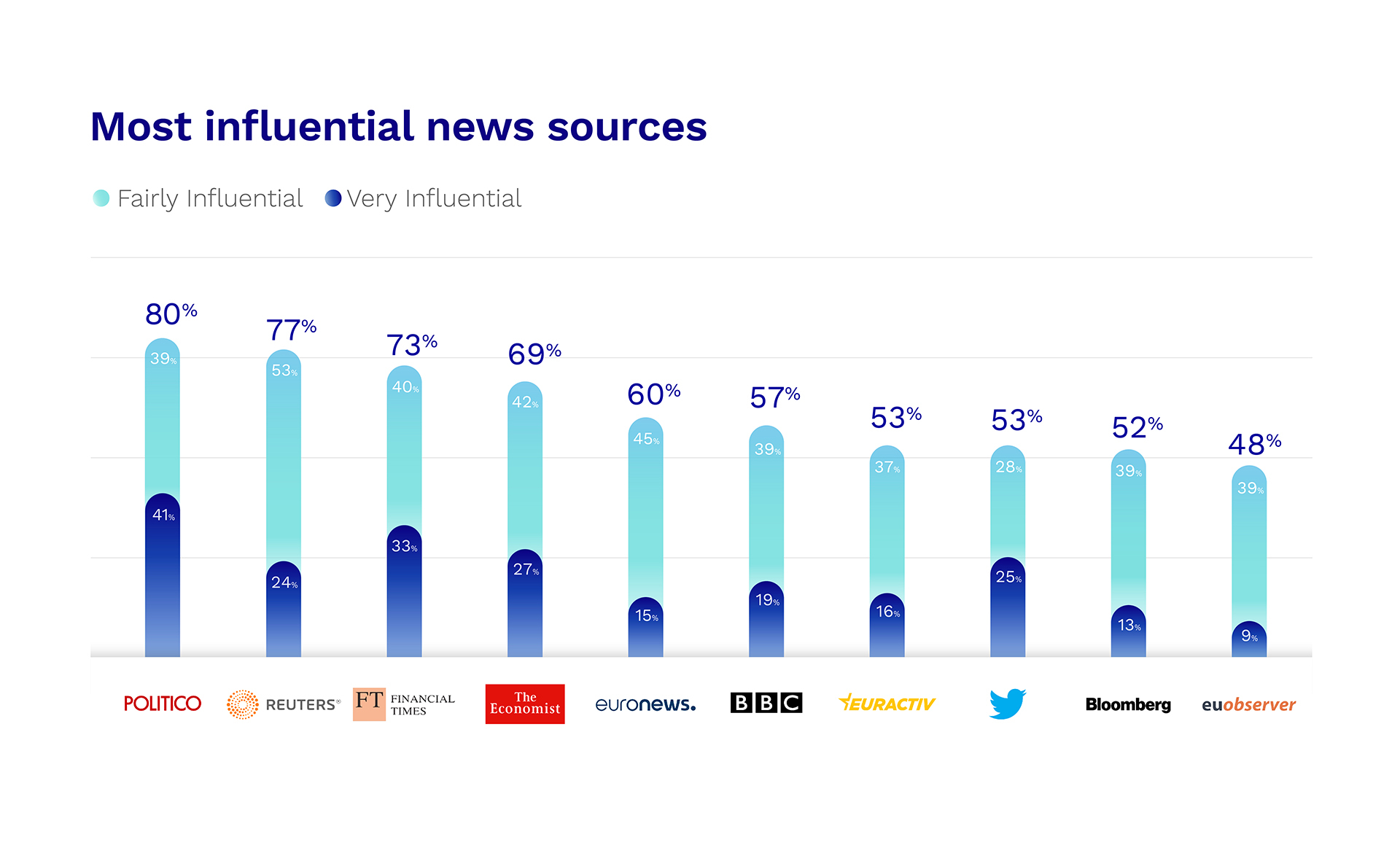
Followed by: New York Times (45%), LinkedIn (44%), Wall Street Journal (40%), Agence Europe (38%), The Brussels Times (32%), Dow Jones (29%), Facebook (26%), The Parliament Magazine (25%), YouTube (22%), Instagram (18%), Contexte (15%), Mlex (11%), TikTok (6%).
POLITICO has replaced the Financial Times as the most influential source of news and information for EU decision-makers. Four in five consider POLITICO to have influence on their decisions, 5 percentage points more than in 2020, and 41% consider the media to be ‘very’ influential.
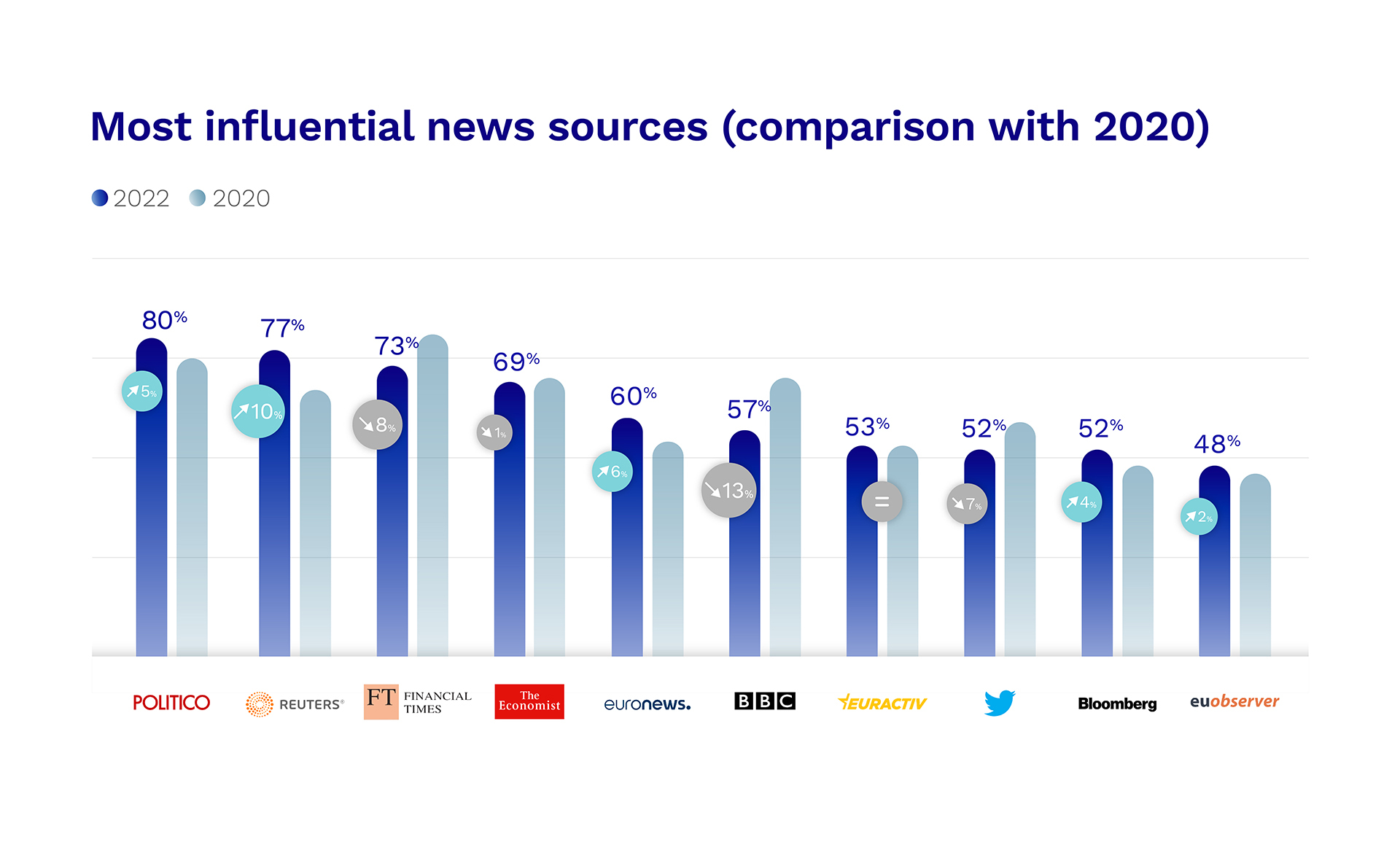
Whilst Reuters has seen a 10 percentage point surge in influence since 2020 to become the second most influential news source, respondents were more likely to cite the Financial Times as ‘very’ influential (33%). The BBC's influence has dropped by 13 percentage points since 2020, potentially owing to the impact of Brexit on the British media’s influence in EU circles.
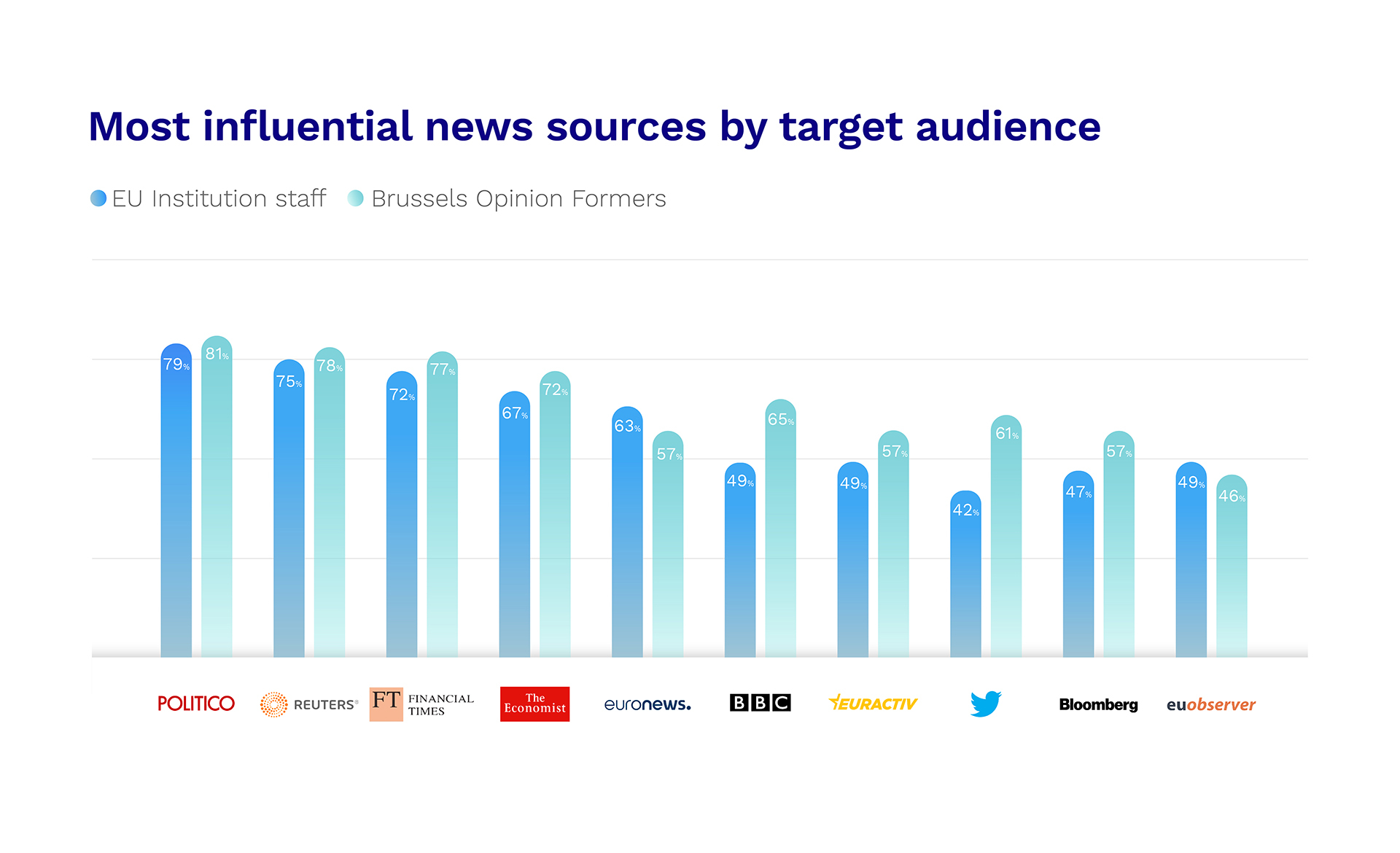
There are subtle differences in the results by audience group. EU institution staff are less likely to say sources such as the BBC, Euractiv and Twitter influence their decisions compared to Brussels opinion formers.
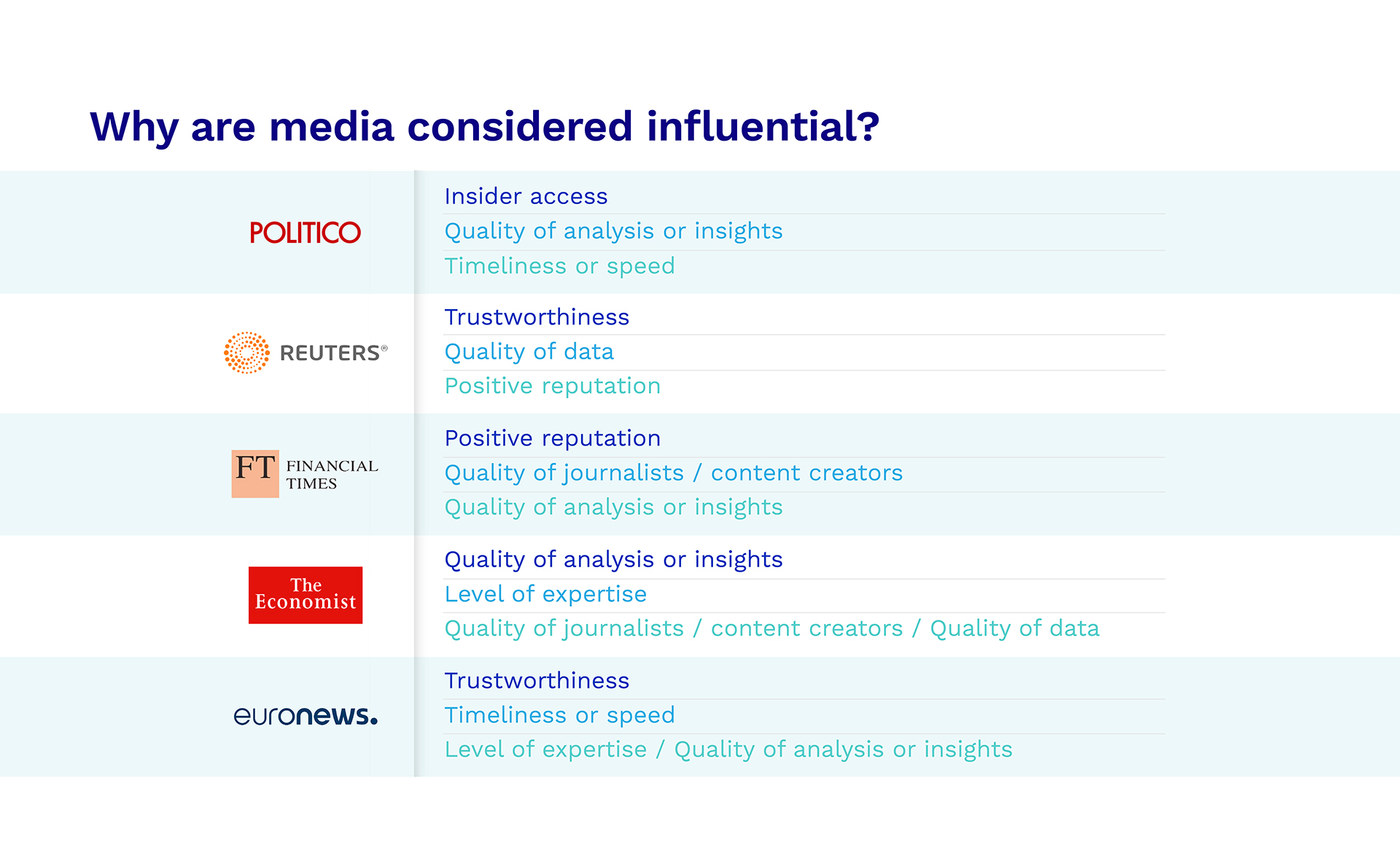
Respondents were also asked why they considered certain EU news sources ‘very’ influential. These factors differ greatly between the most influential media outlets.
POLITICO is recognised for its insider access, quality of analysis and its timeliness or speed of reporting. Reuters on the other hand is considered influential for its trustworthiness, the quality of its data and its positive reputation. This suggests decision-makers distinguish between media outlets for their unique qualities.
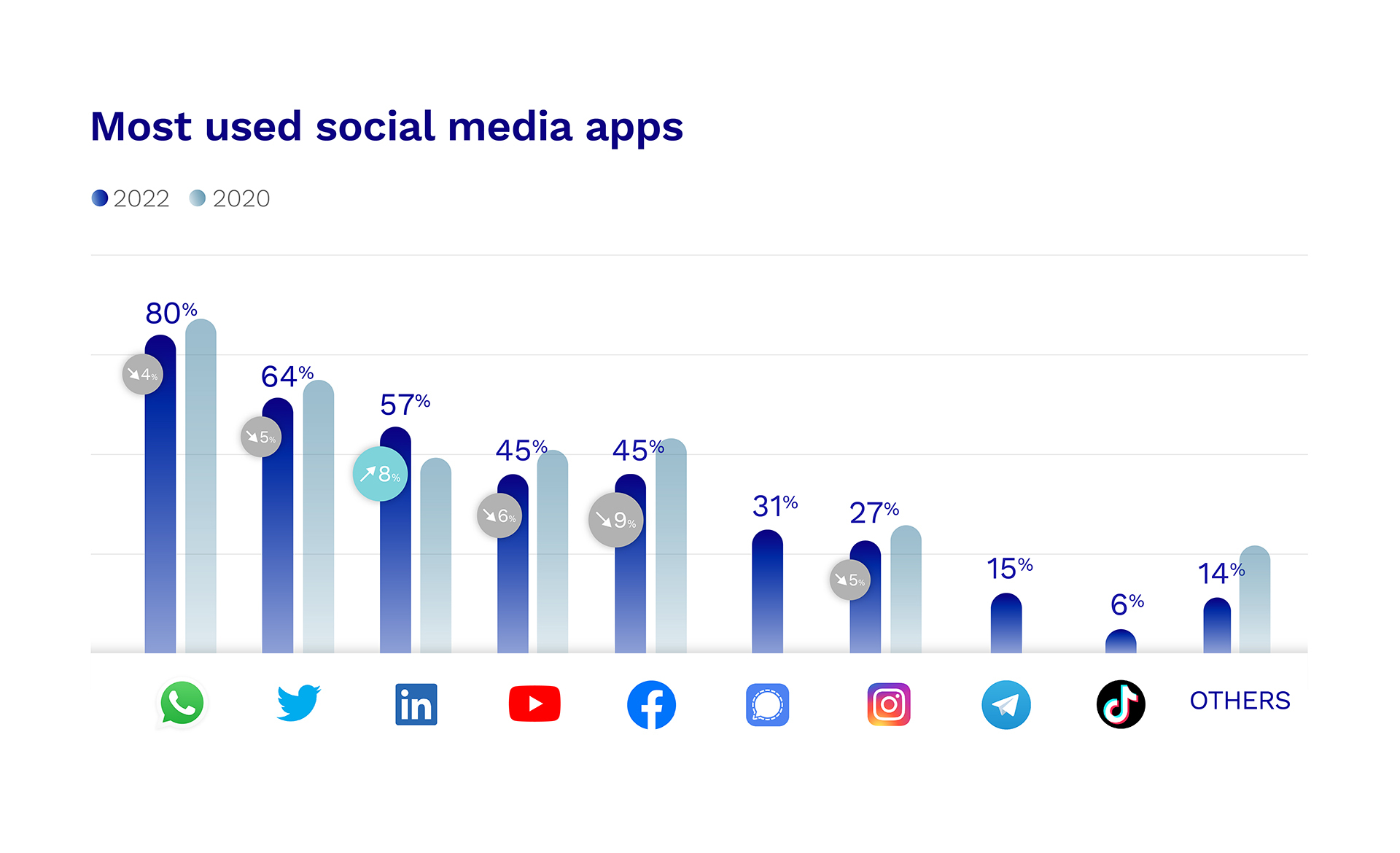
One in five EU decision-makers use WhatsApp frequently (at least once a week). Whilst 64% say they use Twitter frequently, down from 69% in 2020. The big climber is LinkedIn, with 57% of decision-makers using it frequently, up 8 percentage points from 49% in 2020.
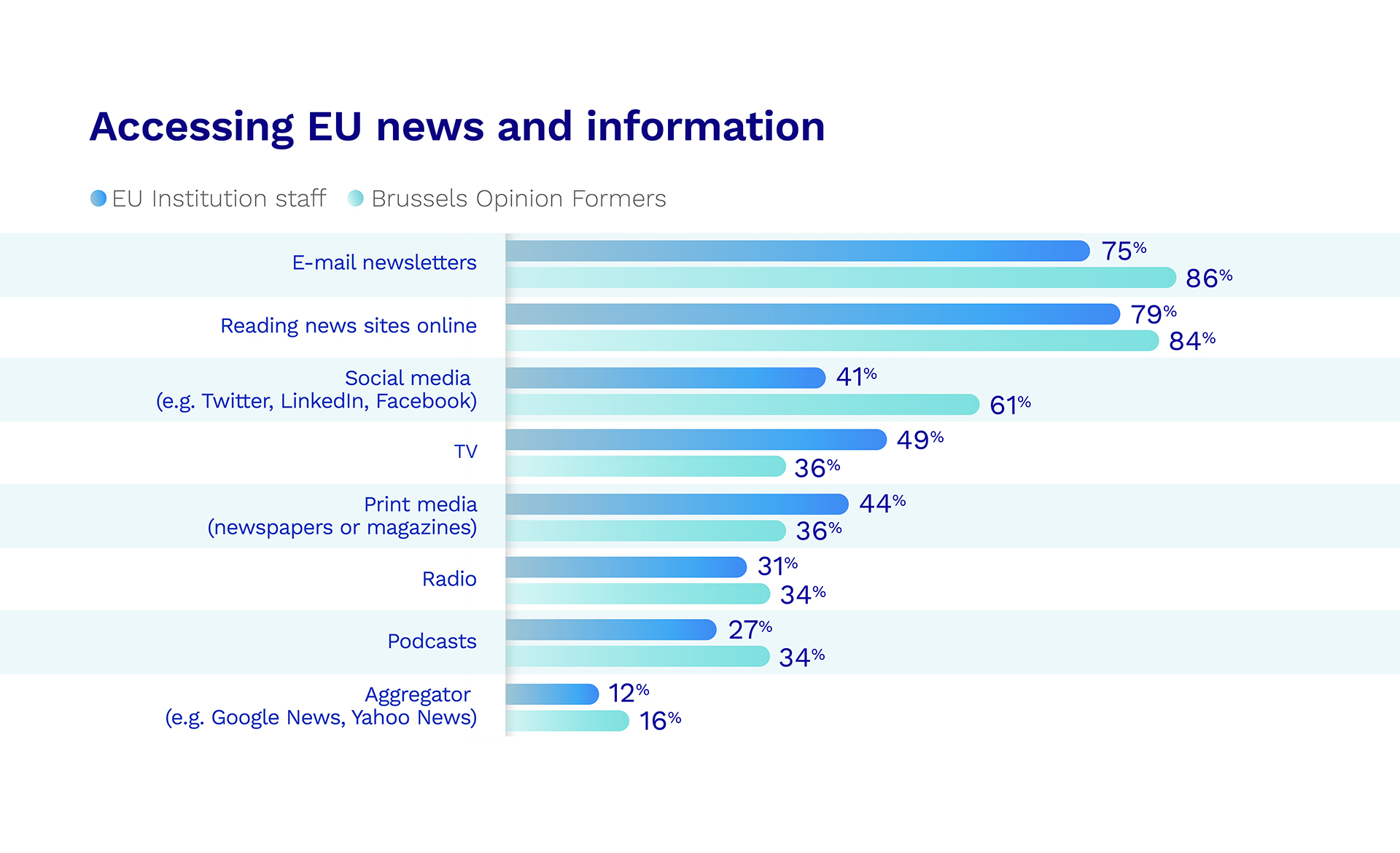
For the first time in 2022, decision-makers were asked how they usually access the news and information they need to make informed decisions. The overwhelming favourites were e-mail newsletters (79%) and online news sites (79%), followed by social media (51%). At the lower end of the spectrum, few decision-makers said they accessed news and information through news aggregators such as Google News (13%). One in three said they accessed EU news through podcasts (30%).
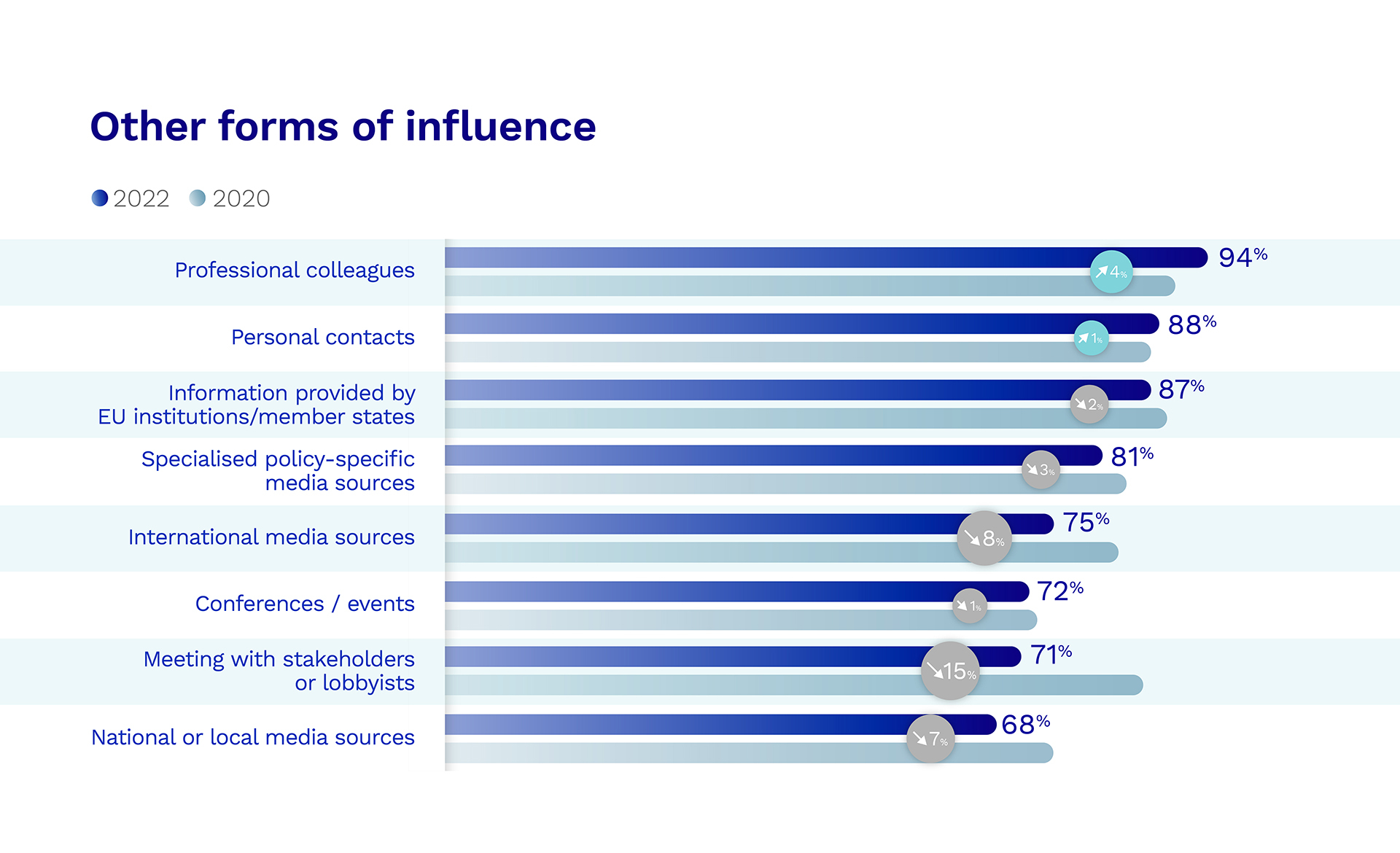
An astonishing 94% of respondents said their professional colleagues influence their decisions, up four percentage points since 2020. Personal contacts (88%), information provided by EU institutions or Member States (87%) and specialised policy-specific media (81%) are also recognised as influential sources of information.
The number of respondents that feel meetings with stakeholders and lobbyists influence their decisions has decreased by a significant 15 percentage points to 71%, whilst national or local media sources has also dropped by 7 percentage points to 68%.
Methodology Note
Savanta ComRes interviewed 213 EU decision-makers (made up of 16 MEPs, 81 EU institution staff and 116 Brussels opinion formers) online between 7th April – 25th July 2022.
For more information, please contact:
Georgina Unsworth, BCW Brussels, [email protected]
Meghan Oliver, Savanta ComRes, [email protected]